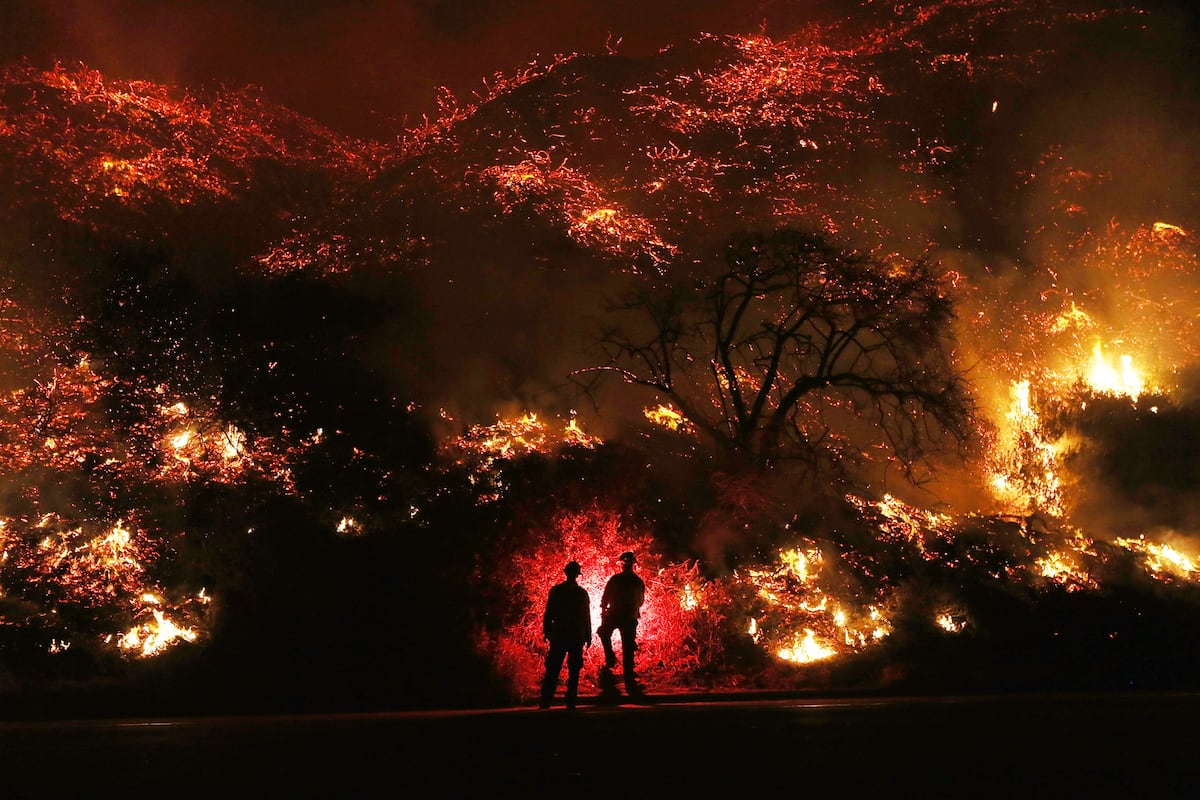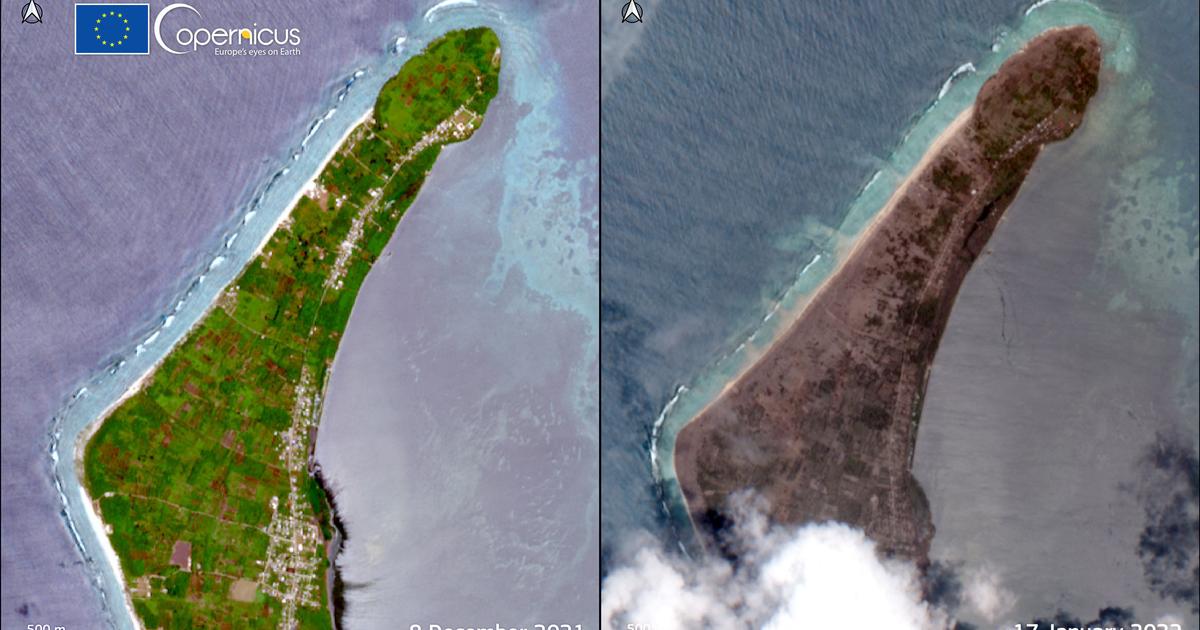Planet before collapse: "Eight billion people are not harmful to the climate - but the few rich"
Created: 11/16/2022, 3:11 p.m
By: Anna-Katharina Ahnefeld
Billionaire Elon Musk likes to polarize – as does his ecological footprint.
© Arnulf Hettrich/Noam Galai/Imago/afp (Montage)
The climate crisis primarily affects those who did not cause it.
Elon Musk, for example, is as harmful to the climate as a million (!) average people.
An exit from the climate carousel is still possible.
Cologne – Elon Musk causes more emissions than a million average people.
This is the result of a current Oxfam study on the occasion of the UN world climate conference COP27 in Egypt.
There is no explicit mention of the new Twitter owner.
But that a billionaire is responsible for more greenhouse gases than said number of the poorer 90 percent of the world's population.
Now not everyone is Elon Musk.
The fact is, however, that the global North is primarily to blame for global warming - and this despite a stagnating to falling population.
“Not everyone contributes equally to the climate crisis.
It is wrong to say that as the number of people increases, the burden on the climate also increases," says Lutz Weischer from the NGO Germanwatch of the
Frankfurter Rundschau
of
IPPEN.MEDIA
, "especially the wealthy part of the world population, but above all the super-rich, put an excessive strain on the climate.” The calculation that an increasing population has a direct impact on the climate crisis does not add up.
On the other hand, the interactions between climate and demographic change are explosive – especially in Africa.
Eight billion people: Global North contributes most to climate crisis
The climate conference is taking place in Sharm el Sheikh to coincide with the UN's deadline for the birth of the eight billionth person (November 15).
Fighting the climate crisis will be discussed in Egypt until November 18th.
The location of the COP27 sets the focus: It is about climate justice.
However, concrete steps to take action, especially on the subject of "loss and damage", the financing of climate-related damage in the Global South, have not yet been taken.
“Droughts and crop failures occur in individual regions that are severely affected by the climate crisis.
The climate crisis is particularly affecting those who least caused it – and whose living conditions were already difficult,” says Weicher.
Poor people in particular still have many children.
According to calculations by the United Nations, the population is increasing, especially in Africa.
However, the increase is not evenly distributed there.
In Morocco, Tunisia and Botswana, significantly fewer children are being born than a few decades ago.
Senegal, Rwanda and Malawi are also growing more slowly.
In sub-Saharan Africa, on the other hand, the number of people will double to two billion by 2050.
Ethiopia, the Democratic Republic of the Congo and Nigeria will be among the most populous countries in the world by the middle of the century.
This also means that more and more people will be directly affected by the consequences of the climate crisis.
Thomas Nice from the Berlin Institute for Population and Development draws attention to this interaction between demographic development and the climate crisis.
“Many of the countries most affected by climate change are also those currently growing the fastest.
That becomes relevant when it comes to how these people can deal with the consequences of the climate crisis.” Rapid population growth would mean that more and more people would have to move to regions particularly at risk from floods and droughts or settle on hillsides: a direct effect of the climate crisis.
Global South particularly affected: interaction between climate crisis and demographics
Then there is the indirect effect.
So there is little research on how climate change affects demographics, says Nice.
But: “Studies show that last year up to four million girls in developing countries were kept out of school because of the climate crisis.
When extreme weather events occur, people cannot easily get to the nearest clinic due to poor health care.
Education, health and wealth influence the number of children.
If access to these services is poorer, then people tend to have more children.”
also read
Rocket impact in Poland: Debris from the S-300 rocket system secured at the site of the explosion
Bundeswehr paper leaked: preparation for war on NATO's eastern flank?
"Attack on Germany"
Further analyzes by the Berlin think tank suggest that at the beginning of 2021 a hurricane in Mozambique – and the associated restricted access to contraceptives – put more than 20,000 women at risk of becoming pregnant.
The institute also cites the findings of the NGO Malala Fund, founded by Nobel laureate Malala Yousafzai, that by 2025 extreme weather events will help 12.5 million girls in the Global South not complete their education.
Those who are least responsible for the climate crisis are paying far too high a price: access to education is decreasing.
And it is precisely this approach that is leading to demographic change.
About IPPEN.MEDIA
The IPPEN.MEDIA network is one of the largest online publishers in Germany.
At the locations in Berlin, Hamburg/Bremen, Munich, Frankfurt, Cologne, Stuttgart and Vienna, journalists from our central editorial office research and publish for more than 50 news offers.
These include brands such as Münchner Merkur, Frankfurter Rundschau and BuzzFeed Germany.
Our news, interviews, analyzes and comments reach more than 5 million people in Germany every day.
In order to get out of this climate carousel, however, the global North, which bears the main responsibility for global CO₂ emissions, must reduce its emissions to zero.
Weischer: “From a climate science point of view, there is no alternative to changing our energy system, our traffic, our industry and our agriculture.
That is the crucial construction site, not population growth.”



/cloudfront-eu-central-1.images.arcpublishing.com/prisa/BBBPQ6SMUZFU3DURZG66IXKRFI.jpg)

/cloudfront-eu-central-1.images.arcpublishing.com/prisa/PA5TT2ZCYBDNLEAREMUPESRVOM.jpg)


